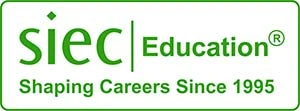
Updated On: 07 October 2025
A Diploma or A Degree in Canada? Which one is better?
Pursuing higher education abroad is a dream for most students these days. Having global exposure, excellent infrastructure, rich culture, and top faculties have been attracting students to pursue education abroad. Canada tops the list, with one of the top-ranked education systems globally, renowned faculty and state-of-art infrastructure to match. Canada is considered the ideal study destination. Canadian education is well-known, and there are several programmes that provide specialised degrees at affordable prices. Because of its multiculturalism, Canada is a secure and peaceful country, making it an excellent study location.
One of the most debated topics or confusion is whether to pursue a degree course or a diploma program in Canada. International students come to Canada because the country's education system provides a varied and flexible range of post-secondary study opportunities. However, there might be some misconceptions about the differences between degrees, diplomas, and certificates. We're here to help you understand these concepts.
Read More: Best Careers to Start in Canada
What is a Diploma?
A diploma is a post-secondary qualification awarded by colleges, technical schools, and some universities. It typically focuses on practical and hands-on learning, preparing students for specific careers or trades.
What is a Degree?
A degree is an academic qualification awarded by universities. It provides a broad and in-depth education in a specific field of study, often including theoretical and research-based learning.
See Also: Canada announces Eligible Programs for PGWPs
Key Differences Between a Diploma and a Degree
1. Duration
- Diploma: Usually takes 1 to 2 years to complete.
- Degree: Generally requires 3 to 4 years of study.
2. Cost
- Diploma: Typically less expensive due to the shorter duration.
- Degree: Higher cost because of the longer study period and broader curriculum.
3. Curriculum Focus
- Diploma: Emphasizes practical skills and job-specific training.
- Degree: Offers a comprehensive education with a mix of theory and practice, including research opportunities.
4. Career Pathways
- Diploma: Ideal for students looking to enter the workforce quickly in technical or vocational roles.
- Degree: Suitable for those aiming for professional careers or higher academic pursuits, such as master's or doctoral programs.
5. Flexibility
- Diploma: Often more flexible with part-time and online options.
- Degree: Usually requires a full-time commitment, though part-time options are available.
You might also like: Top 5 Provinces for Easy PR in Canada
Benefits of a Diploma
1. Quick Entry into the Workforce
A diploma allows you to gain industry-specific skills and enter the job market sooner.
2. Lower Cost
Diplomas are generally more affordable, making them a cost-effective option for many students.
3. Specialized Knowledge
Diploma programs offer focused training in specific fields, making you job-ready.
Read this also: Best Cities in Canada for International Students
Benefits of a Degree
1. Comprehensive Education
Degrees provide a well-rounded education, covering various aspects of a field.
2. Higher Earning Potential
Degree holders often have access to higher-paying jobs and more career advancement opportunities.
3. Academic and Professional Recognition
Degrees are widely recognized and respected, providing a strong foundation for further studies or professional certifications.
Define Degree
A degree is an intense education in a particular field, which can lead to any of the four degrees known:
Bachelor's Degree: The first level of degree that a student initially pursues at university. Bachelor's degrees are increasingly offered by a number of universities and colleges in Canadian provinces such as British Columbia, Alberta and Ontario. The majority of bachelor's degrees require four years of full-time study, while some are three years and some are two years.
Length: 3 - 4 years
Academic Prerequisites: High School Grade
Study Level: Undergraduate
Associate Degree: An Associate degree programme is accessible as a vocational degree that trains students in both practical and theory. It takes two years to complete.
Masters Degree: A student can only pursue a master's degree only once after completion of a bachelor's degree for in-depth study, mostly in the same field chosen during the bachelor's.
Length: 1 - 2 years
Academic Prerequisites: Bachelor's Degree
Study Level: Graduate
Doctorate/ PhD: After earning a master's degree, a student can pursue a doctoral degree or PhD, which is the highest level of study available in Canada and at most universities throughout the world. These programmes are often research-based, and students must get a research supervisor at their preferred university.
Length: 3 - 7years
Academic Prerequisites: Master's Degree
Study Level: Graduate
Advantages of Degree: A degree is widely demanded by most employers as a minimum qualification, irrespective of the case if your major does not necessarily correspond to your employment. Starting a degree programme and seeing it through to completion can demonstrate commitment and determination, which can be useful in the employment market.
- Better opportunity to earn higher salaries
- More job options for entry levels
- Learning new abilities such as critical thinking and analysis.
- Opportunities for future job alternatives through networking.
- Better employment perks, such as insurance, retirement, and maybe travel.
Define Diploma: Diplomas, which are available at the college level, prepare students for success in a certain profession or vocation. In Canada, students can obtain one of three types of degrees:
Regular Diploma: A standard diploma prepares students for success in a particular profession or vocation.
Length: 2 years
Academic Prerequisites: High School
Study Level: Undergraduate
Advance Diploma: Because it often includes a co-op or internship component, an advanced diploma is more specialised than a conventional diploma. This is a once-in-a-lifetime opportunity to use your abilities in real-world circumstances, network within the business, and begin developing your career.
Length: 3 years
Academic Prerequisites: High School
Study Level: Undergraduate
Graduate Diploma
After finishing a standard or advanced diploma or a bachelor's degree, a student can pursue a graduate diploma. A graduate diploma provides students with comprehensive coursework as well as hands-on experience.
Length: 1-2 years
Academic Prerequisites: Regular Diploma or Bachelor's Degree
Study Level: Graduate
Advantages of Diploma: A diploma might be useful if you want to make a job move in a short period of time, and the profession you want to pursue does not require a degree.
- They may be finished in a reasonably short period of time.
- They are inexpensive; they are less expensive than a full-fledged degree.
- You won't have to deal with prerequisites or other cumbersome enrollment procedures that you would encounter with a degree programme.
- Because the majority of students are working professionals, class timings are frequently flexible.
- Classes are designed to teach you the specific skills you will need in the area. Diploma programmes typically include internships or externships, which allow you to obtain practical experience while also networking with potential employment prospects.
You may like: Canada Ends Flag Polling for Border Applications on Post-Grad Work Permits
Conclusion
If you are planning to pursue higher education in Canada, and confused which course to apply for then contact SIEC experts and know about better career opportunity for you.
Reach out to SIEC for applications and queries.
Read more insightful articles:
Low-Cost MBA Colleges in Canada
Study in Canada: Cost, Courses & Scope, Industry Insights and Part time Work Opportunities
How can SIEC help Students to Study, Work, and Immigrate in Canada?
Bow Valley College, Canada: Programs, Admission, Scholarships, Placement, Cost



Comments (0)
Leave a Comment